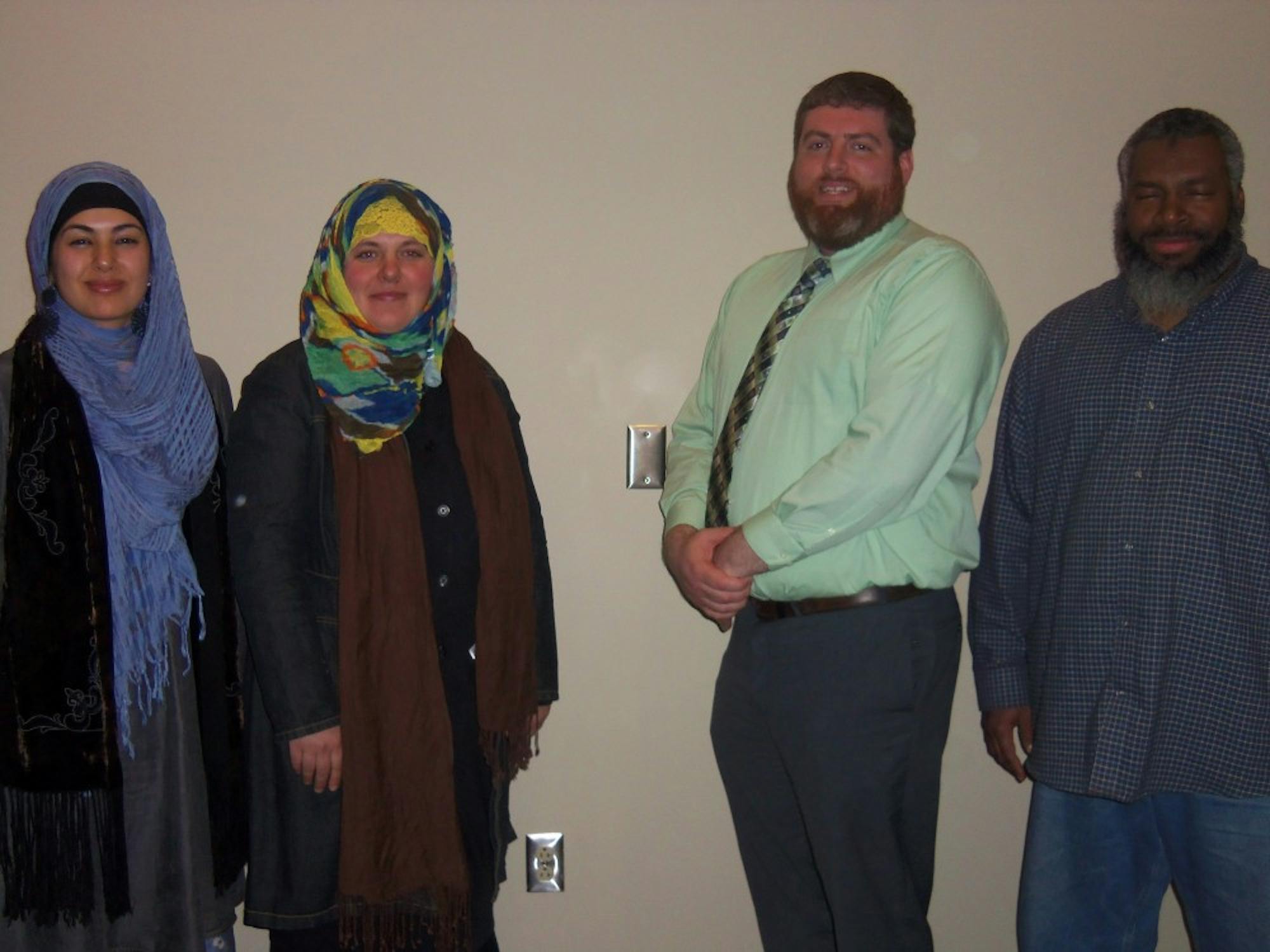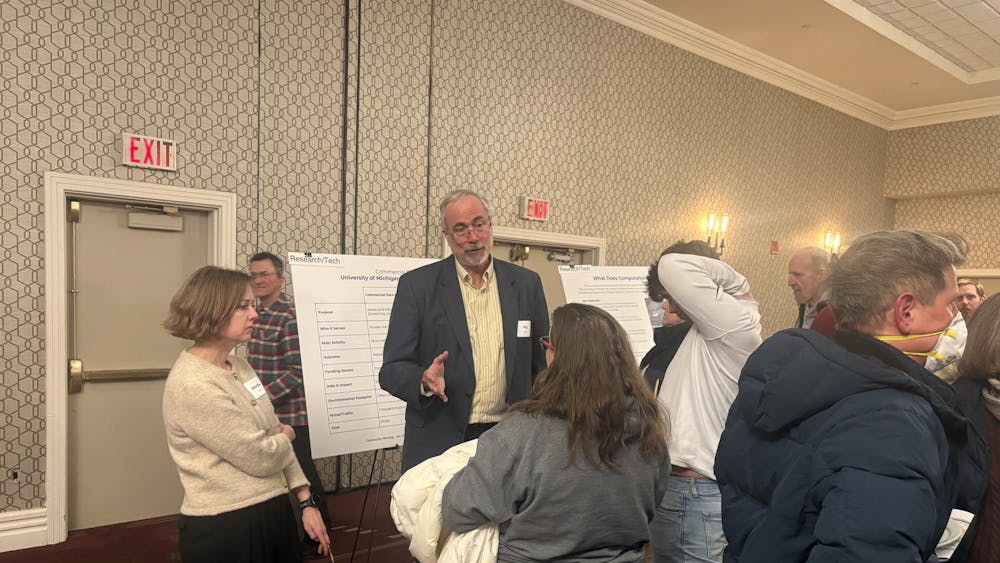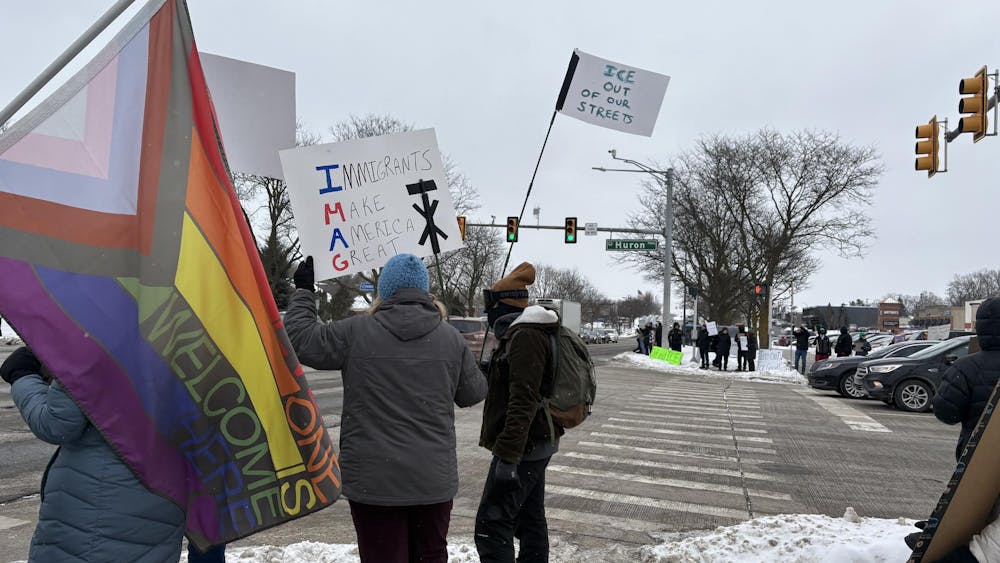Eastern Michigan University’s Muslim Student Association gathered 60 students for Crossroads, a panel discussion from speakers Amin Abdush Shakur, Joliba Honzaki, Joseph Swager and Khadija Umm Uthman. The four spoke about what encouraged them to convert to Islam.
Shakur, from Panama, was raised in a Latino household and was constantly pushed to study. He said he used to “get drunk and go to clubs to drink even more” until he read the “The Autobiography of Malcom X” to find out more about Islam. In doing so, he took notes, limited hangouts with friends and eventually converted.
“I got a direct connection with my creator [Allah],” Shakur said. “I thought this is simple, this is easy.”
Honzaki was a singer coming from a Japanese and Italian family and was taken to multiple churches as she grew up, often feeling unsure about the belief system. She said the language of the Quran, prayer and the wudu (ablution) aspect attracted her to Islam.
“I had a dream of being at a mosque and people that I knew were there,” Honzaki said. “We were all heading to the masjid [mosque] and I said, ‘Oh, I have to make wudu.’ And everyone was getting ready to pray and I said, ‘Oh, I don’t know how to pray.’ I watched everyone pray and afterwards there was a halaqa [a gathering to learn about Islam] and many people introduced me to the sisters.”
Honzaki said she continued to study Islam on her own and felt it was easy to remain consistent within the religion. After going to a Friday prayer at a mosque with a friend of hers, Honzaki made Islam her official religion.
Swager came from a military household and his parents were a part of Jehovah’s Witnesses, which he also eventually joined. He said that in the past, he felt studying religions led to flaws until he made a Muslim friend who encouraged him to read the Quran before commenting. After an incident with his children, Swager decided to study Islam and felt it was the true religion for him.
“If you use an open and logical mind, the Quran will never lead to astray,” Swager said.
Uthman said her parents are from Germany and Luxembourg, and that she and her siblings were raised in a “hippie nature.” After dealing with her father’s diagnosis of terminal brain cancer, she said she questioned spirituality and wondered where he would go when he dies.
Uthman said she eventually moved to Los Angeles and later saw her brother finding out he was Muslim and that God will forgive the sins of a person who converts.
“Anytime I went back to my old lifestyle, Allah sent me signs,” Uthman said. “I went out for my 21st birthday and came home to my house burning down except for my room, which had a Quran in it with a light shining on it.”
She said she was going through financial trouble at one point and asked Allah to help find a job to support herself. During that week, Uthman continued, she was offered a job at a Hugo Boss boutique.
MSA President Waleed Baker said it was the first time the MSA had hosted this type of event. Baker said what struck him the most from the speakers was that they all found flaws that pertained to them with other religions, but couldn’t find any after looking into Islam.
“People who are converting to Islam have experiences as to what led them to Islam which makes it more personal,” Baker said. “It shows the human side of [Muslims] rather than what’s portrayed on TV and that we’re more similar than different to people.”
MSA Vice President Hiba Baghdadi said she loved the spirituality of Honzaki and Uthman’s artistic sense and how they still manage to connect that with Islam.
“I came into this thinking you’ll hear concerns about people and how they converted,” Baghdadi said. “I didn’t think it would be so shivering.”
Sophomore and biology major Mariam Diallo said she was born Muslim and was shocked to see a white woman on the panel because she had only seen Arab and African-American Muslims.
As she was growing up, Diallo said she didn’t learn a whole lot about her religion and she would ask her parents why they didn’t have a Christmas tree, as Muslims don’t celebrate the holiday.
“It’s really important for everybody to know about every religion,” Diallo said. “I really don’t know much about my own religion, so it’s really important for me to know more and I want my friends to know more about it as well.”










